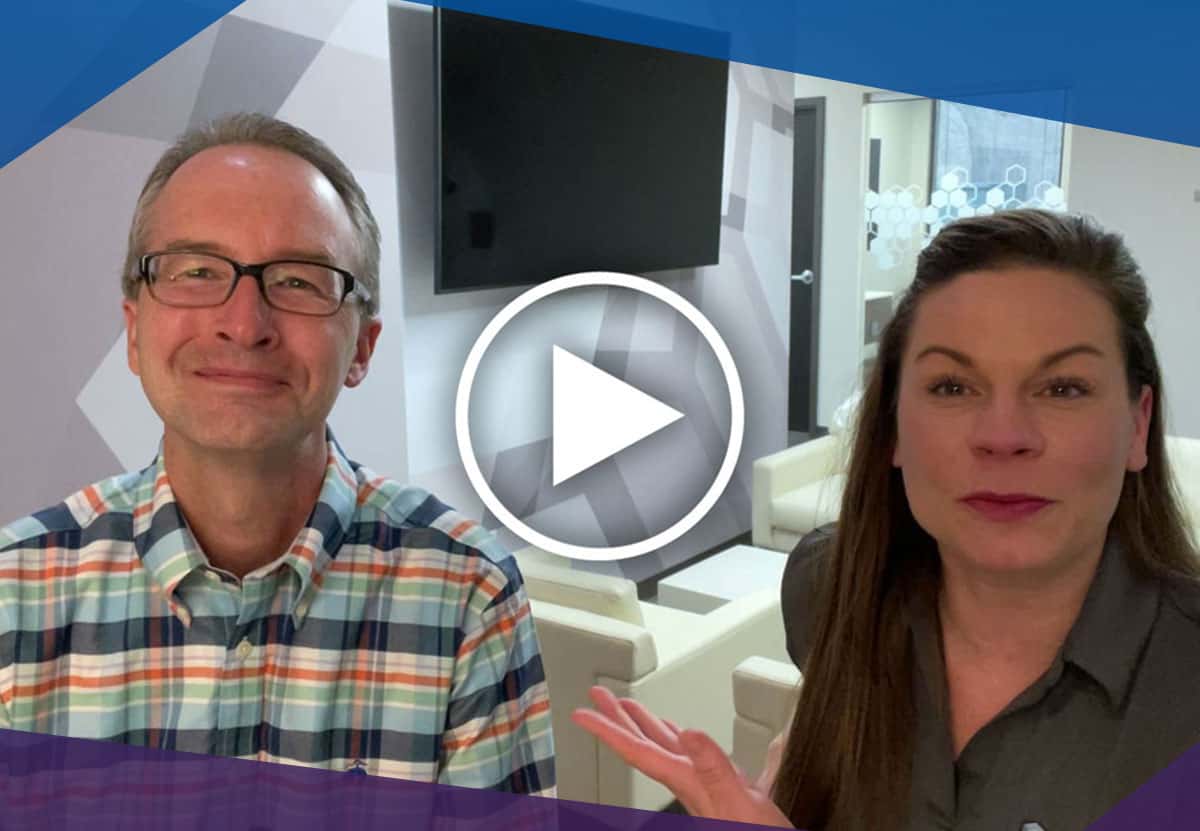… What Could Go Wrong?
Mark Anderson and Libby Powers of Anderson Technologies take a moment to explain how a popular work-from-home set-up might not be providing the security you want. If you’re re-evaluating your remote work set-up, or considering a hybrid work (part time at home) model, it is important to dig into the security you’re really getting – not just the security you thought you had.
Transcript
Libby Powers: Hi, everybody, thank you for joining us on another episode of Byte-Size Tech.
Mark Anderson: Hi, everyone.
Libby Powers: Mark Anderson, one of the principal founders of Anderson Technologies. Today we’re going to be discussing working from home and having a hybrid approach using a VPN, right? Can you tell us a little about what a VPN is?
Mark Anderson: Sure, a virtual private network is the equivalent of stringing an orange extension cord from the corporate office to your home office and having that dedicated connection between the two.
Libby Powers: Got it. When all these companies were forced into this work-from-home situation last year, many companies were advised that the VPN was all they needed, whether it be a work computer or a personal computer, right?
Mark Anderson: Yes, exactly.
Libby Powers: Okay. We actually were talking to a company a couple weeks ago, and they were advised by another IT firm that the VPN was the only precaution they needed to take for working from home, whether on a company or personal computer. I’m pretty sure they were pretty upset to learn that that’s not it.
Mark Anderson: Well, VPNs are wonderful. We strongly recommend their use when you have data at the company that you need to have access to. But what you can’t forget is that it’s really important the level of security that is installed on the home office computer, whether it’s a laptop, or a normal workstation.
In this particular case, the individuals were using all home computers that had not been audited by the company’s IT department to determine whether they had the latest operating system updates, whether they had an enterprise-grade antivirus/anti-malware program installed. It was kind of a hot mess back at the home office that was then being exposed to the company and company data via all these VPN connections from everyone that was working from home. It was not good.
Libby Powers: So basically, what we’re saying is that—and I was very surprised to learn this is, as I have kids, obviously many of us have kids— everything that the kids do on their devices, whether it’s even on the device you’re working on, your personal computer, maybe they have an iPad or a laptop or something for whatever they’re doing, it’s affecting the network, right?
Mark Anderson: Well, it can be, right? Because the issue is that if someone [or their] child has a computer, and they click on something they shouldn’t, and something is installed then on that that particular computer, anything that is attached to the network could be at risk. So any other computer— namely, the one that the individual is using to connect to the corporate office—that one could be infected by something that had gone on with your kids’ computers, so you just have to be very aware of that.
Libby Powers: Then what are some of the additional protocols?
Mark Anderson: Sure. If the company cannot afford to send dedicated laptops home with every employee, then you need to get into, “All right, well, what devices do I have attaching to my network, and what kind of software is installed on those devices?” Each one of them truly needs to be audited, and then we would highly recommend that those free antivirus programs get deleted, and more enterprise grade ones get installed.
Libby Powers: So you’re saying that the free antivirus that comes with my computer when I buy it is not enough?
Mark Anderson: It’s usually not adequate. That’s correct. Well, that’s probably a subject for a whole other video because there’s a lot of detail which goes into that as well.
Libby Powers: That’s good to know. Well, I think the key takeaway here is that so many of us were forced into doing a work-from-home or a hybrid, and many companies were advised that the VPN was kind of a silver bullet, and we know that it’s not. Just make sure you’re working with an IT company, and that they really understand the need and necessity for possibly having other softwares in place to protect your company data even further.
Mark Anderson: Sure, that’s right.
Libby Powers: Awesome. Well, you can read more about this on our blog, and I look forward to having another conversation with you regarding the actual software that you get for free and all that entails. Thanks, everybody!
Mark Anderson: Thanks for listening. See you next time, bye-bye.




